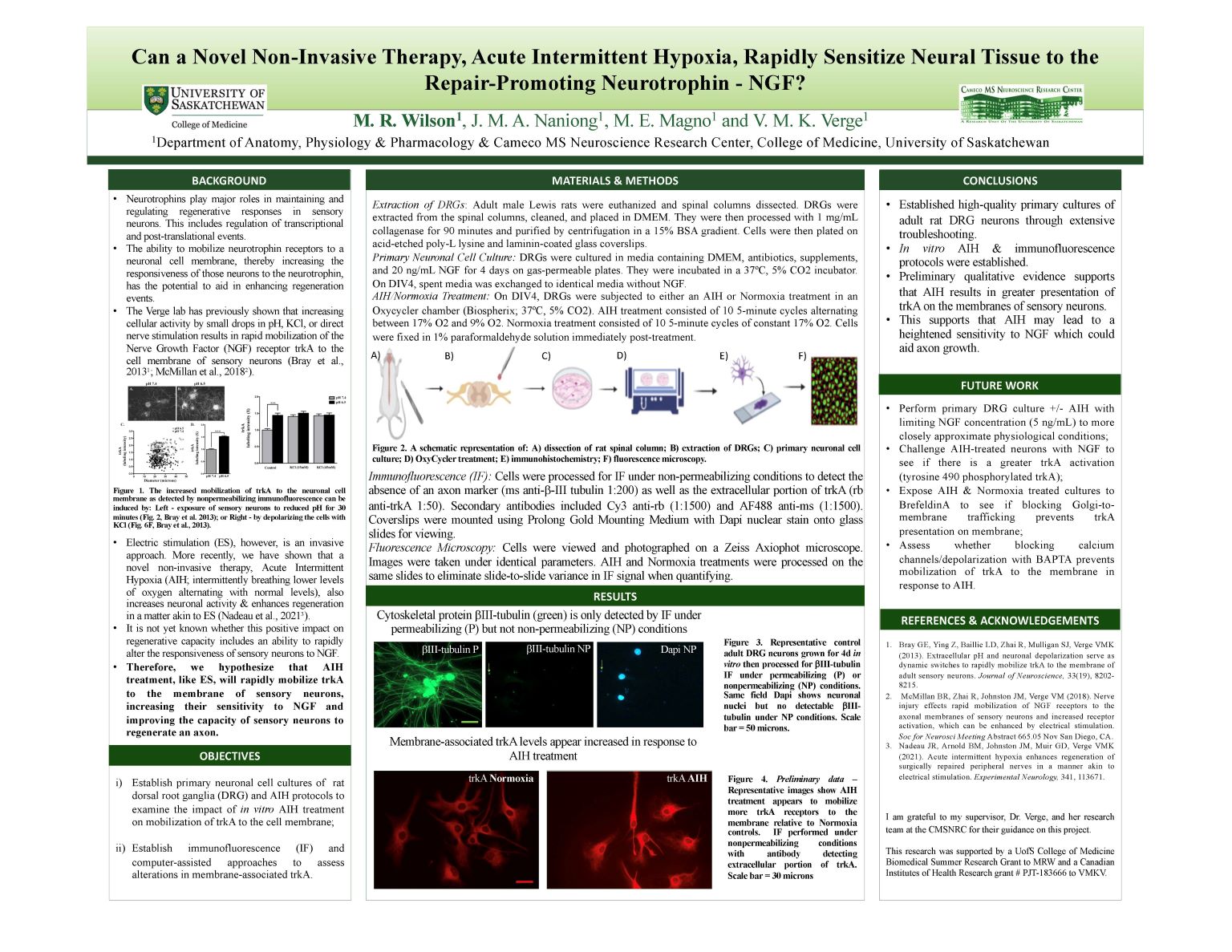
Can a Novel Non-Invasive Therapy, Acute Intermittent Hypoxia, Rapidly Sensitize Neural Tissue to the Repair-Promoting Neurotrophin - NGF?
Maya Wilson
The neurotrophin nerve growth factor (NGF) and its receptor trkA are important for maintenance and regulation of axon growth in sensory neurons. We have found that drops in pH and ultimately neuron depolarization can rapidly mobilize trkA receptors to sensory neuron membranes, increasing the neuron’s responsiveness to NGF. We have also shown that Acute Intermittent Hypoxia (AIH), a novel non-invasive therapy involving breathing normal oxygen levels alternating with lower oxygen levels, increases neuronal activity and nerve regeneration akin to invasive electrical nerve stimulation. This made us posit whether AIH’s ability to increase neuronal activity alters sensory neuron responsiveness to NGF by rapidly mobilizing more trkA to the plasma membrane (PM). To investigate this, primary neuronal cultures of adult male Lewis rat dorsal root ganglia were established and underwent AIH or Normoxia treatment. Immunofluorescence under non-permeabilizing conditions assessed AIH treatment’s impact on PM trkA levels. Preliminary evidence supports that AIH treatment results in increased presentation of PM trkA. These findings remain to be quantified, but suggest that sensory neurons are able to rapidly alter a neuron’s responsiveness to NGF by mobilizing receptors already formed in the cytosol to the cell surface; the mechanisms of which are the focus of future experiments.
